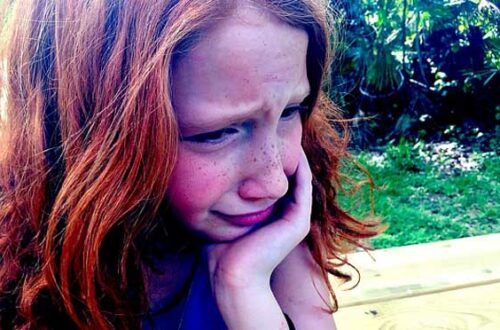Don’t Just Survive
Today I'm happy to have as my guest Mary DeMuth, my dear friend who's an author and speaker. Her desire is to help people live “uncaged,” freedom-infused lives. She’s the author of fifteen books, including six novels, a memoir, and most recently The Wall Around Your Heart, from which today’s column is adapted. (It appeared in similar form at Crosswalk.com. I read the book and endorsed it.) After church planting in Southern France, Mary, her husband, and their three young adult kids now live in the ‘burbs of Dallas. To find out more about Mary, visit her website, facebook, twitter, or wallaroundyourheart.com,
Some of us cope with relational pain by choosing to live in survivor mode. We’re not Eeyores or Debbie Downers. We don’t scream at ourselves for our failures, nor do we bend toward narcissism. We have relinquished our desire for vengeance. So we may feel that we’re okay in the way we process life after someone has hurt us.
Except for this: we’re numb, and we don’t care that we are. In terms of trauma, there is an ebb and flow to recovery. After painful experiences, to better cope, we shut down. We lose our personalities. We find ourselves preoccupied with nothing. Sometimes we sink into depression. We may self medicate with alcohol or drugs (prescription or illegal). Or we turn to food or thrills or escapism—anything to withdraw from the world so we don’t have to face our pain. The problem is this coping mechanism is too successful. Yes, we feel no pain, but we also experience no joy.
While it does work for a while to heal and retreat from pain, eventually we have to choose to move forward in life. We can’t stay in self-protection mode forever, nor will our lives be fruitful if we merely survive. There is more to life than putting one dogged foot in front of the other.
When we lived overseas in France as church planters, I spent two and a half years in survivor mode. After nearly every relationship recoiled on me, as friends became enemies, I shut down. Sometimes I couldn’t make myself wake up. My bed became a haven from the peril of people. Thankfully, my husband saw this and started making me interact with people. I didn’t want to. I wanted to make a blanket statement that every single human being on the earth, with the exception of my family, was not to be trusted and certainly didn’t deserve my friendship. Had it been left up to me, this extrovert would’ve retreated into hermithood. Forever.
Jesus said He came to give us abundant life. This can be hard to swallow after people have wronged and abused us. When we’re hurt, it’s hard to see through the thicket of the pain toward the wide open spaces of abundance. We smallify our worlds, choosing not to risk or venture for the sake of self-protection.
“I feel nothing,” I told my husband during this season of self-isolation. “The anger toward the people who have hurt me has gone, but it’s not replaced by joy. I’m living like a zombie, and all I feel is numbness.”
My husband Patrick listened. He watched how I’d shrunk within myself, morphing from vivacious adventurer to worried isolator. But his tough love eventually forced me to shift from survival mode to kingdom mode. It didn’t happen overnight by any stretch, but eventually I left the land of Numb and joined the real world again. Sometimes it felt like I had to scrape and scratch my way there.
And now I find myself surrounded by relationships, engaged with people, discipling others. I don’t write this so you’ll tell me how awesome I am. I struggled and gritted my way toward health. And Jesus pestered me like crazy, enticing me to trust others when my trust muscle had atrophied. He remade me in the aftermath. He moved me from lethargy to love. He wooed me from isolation to friendship. He encouraged me from safe living toward adventure.
God’s heart for each of us is wholeness. He wants us to be more than merely walled off survivors. He longs to see us thrive in the aftermath of others’ pain. And He understands. Jesus felt the sting of rejection from all of humanity. He experienced more abuse than we can comprehend. And at His most painful moment, the Father turned from Jesus for the first and only time in an agonizing aching of the Godhead. Jesus understood betrayal like no one else, and He is waiting to move us beyond our self-protection into lives joyfully lived for and with others.
This doesn’t mean we’ll never suffer. It certainly doesn’t mean we’ll never experience relational pain. But what it does mean is that we’ll find ourselves walking alongside Jesus, who walks behind us (where the abuse happened), beside us (as we process the pain) and before us in the glorious future (beyond the pain).
If we will allow Him, He will heal us, strengthen us, and give us the abundant life He promised. But first we must let go of the healing process, of our managing it in our own strength. Give Him the reins of your healing. And trust Him to build His kingdom in you—a kingdom full of excitement, adventure, and risk.


